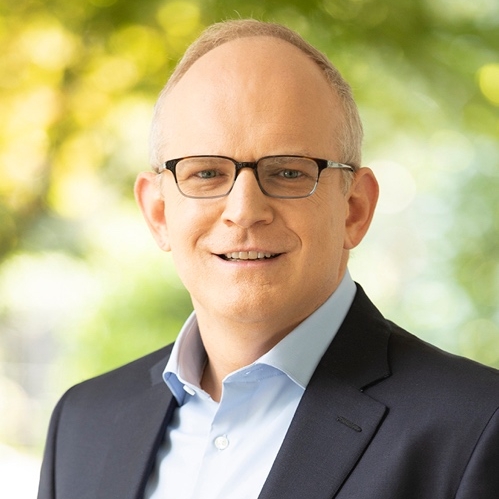NIFW Founder, Missy Wallace was featured on Faith Driven Entrepreneur's blog and podcast. Listen to the podcast (click here) and read her article below:
One crisp fall morning in Nashville, six CEOs of entrepreneurial enterprises gathered to discuss their woe of the week. While the conversation started with the idle chit-chat of kids, traffic and weather change, an awkward silence overtook the room when our facilitator led with, “so what is really going on this week....”
Eyes diverted to the floor. The silence lasted and lasted. Typically one to fill the air with commentary, I had to bite my tongue to allow the discomfort to encourage vulnerability. Finally, John, a CEO usually full of theological wisdom and confidence, shakily shared, “I think this is really the week.”
He was referring to the week when the precarious house of cards might really fall. When the receivables aren’t coming in. When the cash on hand might not cover payroll. When that clinch “investor” is leaning towards a “no thank you,” and the bank is calling the line. The week when he just might have to call it quits. Pack up. Send 30 people home with pink slips.
Somewhere around his second sentence, the tears started falling, brushed with hints of both anger and hope. “Why the f*&$ did I leave a senior position at Google to serve God as a CEO if this is the outcome?... But I feel God is in this.”
Moments later, another CEO, David, sheepishly and after much cajoling, confessed that he would be experiencing his first “major liquidity event” later that week - “a low seven figure payout, not life changing, but significant.” To our surprise, he continued with his own vocal shake, “I know this seems really weird, but I am actually jealous of John right now.”
We all sat stunned. Again, awkward extended silence.
David went on, “The money makes me feel like a king. And that I need to do it again and again. I do not feel close to God.....It’s hard to be dependent on God when I just created this for myself. If I do not handle this with extreme caution, it could push me from God.”
Some say life in our weekly meeting, Entrepreneur Support Group, can occasionally seem like an AA meeting since the emotional vacillation of “entrepreneurism” can feel like something from which to recover. “I am Jane, I am an entrepreneur. I vacillate �between my vision of 'it' working, bringing me wealth, fame, and of course making the world a better place...... And utter despair, because I am terrible, I cannot get it done, and it’s going to fail.”
And that vacillation is weekly, if not daily or sometimes even hourly. It is the norm for the call of “entrepreneur.”
In an article in Inc. Magazine titled “The Psychological Price of Entrepreneurship,” Toby Thomas, CEO of EnSite Solutions likens the CEO role to riding beasts,
“‘People look at (the CEO) and think, This guy's really got it together! He's brave!’ says Thomas. ‘And the man riding the lion is thinking, How the hell did I get on a lion, and how do I keep from getting eaten?’"
What is it about entrepreneurship that creates the swinging pendulum? Does entrepreneurship create the vacillation or is the person hard wired to the role and its consequences? And does the pendulum swing include turning to and from God?
Our group has found that some “liturgical” practices can reduce the swings:
1. SUPPORT AND BE SUPPORTED
Being a start-up CEO requires many situations where communication between aspiration and reality can diverge. Don’t create more than necessary. Surround yourself with other Christian entrepreneurs trying to work through what being dependent on God looks like in the context of building a business. Our group meets weekly with two facilitators to discuss key stressors in the business. We do not intend to solve the marketing problems, or advise each other on investor contract details - rather, we offer Kingdom perspective. We reiterate what God says about success and failure - about our worth. We anchor each other in God’s story instead of our own. As important, avoid groups which encourage you to posture unnecessarily about how well you and your company are doing.
2. UNDERSTAND GOD’S WORD ON YOUR CALLING
Arm yourself with a theology of entrepreneurism. Understand what God says about work (we were created for it), and creativity (it came from Him and is a gift to steward), leadership (we are given opportunities to love people, places, and things to life), wealth (in and of itself it is not evil, but making it a god is), brokenness (we are broken, systems are broken), and startups (creating something out of nothing is God’s first act on the first page of the Bible).
�3. SELF REFLECT: UNDERSTAND YOUR PERSONAL AREAS OF BROKENNESS
Are you feeling jealous or overly controlling? Is your anxiety spinning out of control? Is fear taking over? Are you soothing yourself with alcohol, social media, or excessive work hours? See those as symptoms to your root areas of brokenness. Take one symptom and keep asking, “why, why, why.” For instance, Why am I jealous? Because I am scared their company will thrive and mine will fail? Well, why am I scared? Because if it fails my reputation might be ruined? Well, why does that matter? What do I need? Why? Ultimately our brokenness leads back to the fact that we either do not believe that God is in control, do not believe we are his adopted children and he plans for our good, or we do not feel good enough for him without performance. (P.S. Psalm 73 is a great balm for jealousy.)
4. INDUSTRY REFLECT: HOW DOES YOUR INDUSTRY AND COMPANY AT THEIR BEST ALIGN WITH GOD’S CHARACTER?
Financial services can show God’s sense of order; entertainment can show His creativity. What about yours? What problems does it solve? Likewise, where are systems and processes not aligned with God? Are people extorted? Is greed a problem? Is the earth exploited? Can you shine light on the brokenness? Can you engage differently?
5. STOP DREAMING OF QUITTING
In one group meeting, one CEO queried, “how many of you dream of quitting every week?” All raised their hands. Every. Single. One. By understanding that thought pattern as the norm can help you carry-on steadfastly, until you believe God wants you to stop.
6. CREATE LISTENING RHYTHMS
One of the questions we are most asked is “How do we know what God is telling us to do?” And our response is, “Are you making time to listen?” In addition to regular involvement with a church and personal devotional time with Scripture, we encourage the practice of a regular day of silence - a whole day. Ours consist of silently marinating on two Scriptures for six hours. No strategic planning, no to-do list making, no catching up on reading. Only time with Jesus. It renders peace, confidence, further belief in God, and likewise leadership encouragement. As the day approaches, everything can tell us to skip - too much to do at work, a child is sick, the company website is down, the lawyers have an issue. Mother Teresa, while building great networks of poverty alleviation which required incredible busyness, committed to the practice as noted by her comment, “In the silence of the heart God speaks. If you face God in prayer and silence, God will speak to you. ... Souls of prayer are souls of great silence.”
And Most Important:
7. YOUR TREASURE IS THE KEY TO PEACE
Does “upside” really matter? Do you really believe that God has your best in store for you? Do you really believe that you are �good enough because you are a child of God? Do you believe your company is His for you to steward? Can you believe that the company's success or failure is not who you are? Rarely have I met a CEO who can live in these beliefs hour to hour and day to day, but some are on their way because they are grounded in Christ.
And that sense of calm, that only Jesus can offer....well it’s like taming the lion you’re riding. By the way, it’s been a year, and John’s company is still alive.















